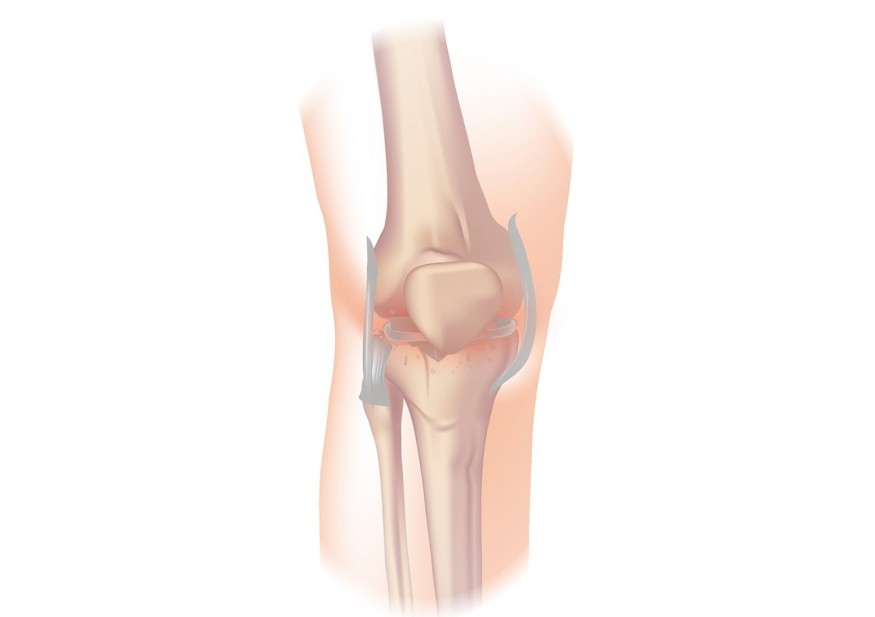New Study in mice suggests that nanotherapeutic injections into arthritis knees could decelerate cartilage degradation.
Cartilage plays a vital role in our joints. It cushions a lifetime's worth of walking, running, and intense activities. However, because it isn't self-repairing, the tissue degrades due to injury or is worn out by time, leading to osteoarthritis.

What is Osteoarthritis?
According to the Centers for Disease Control and Prevention, osteoarthritis is the most common degenerative joint disease that predominantly inflicts the hips, knees, and hands.
With OA, the cartilage in your joints breaks down, and the underlying bone begins to change. These changes often develop slowly through your life or get worse over time. OA can cause stiffness, pain, and swelling.
In severe osteoarthritis cases, it can cause reduced function or disability, with many unable to perform daily tasks.
Osteoarthritis is the leading joint disorder in the United States. Knee OA occurs in 13% of women and 10% in men 60 years or older.
From 2013 to 215, roughly 54.4 million US adults or 22.7% annually have been reported to have been diagnosed with some form of arthritis.
Nanotherapeutic Injections for Osteoarthritis
Recently, many studies have been conducted to potentially slow the degradation of cartilages. Some suggested using algae-derived molecules, stem cell treatments, or molecule injections.
New research developed molecules that show evidence of regenerating cartilage by targeting protein pathways linked to cartilage growth.
Ling Qin, a co-author of the study from the Department of Orthopaedic Surgery at the University of Pennsylvania, says, "Our lab is one of the few in the world studying epidermal growth factor receptor signaling in cartilage and, from the beginning, we found that EGFR deficiency or inactivation accelerates osteoarthritis progression in mice."
Researchers first confirmed the link by engineering mice with overactivation of EGFR. The experiment showed that these animals had enlarged cartilages that weren't subject to wear and tear. In control mice, their cartilages even resisted damage when researchers surgically removed meniscus mimicking osteoarthritis.
On the side of caution, scientists reversed the process by inducing drugs that blocked EGFR that accelerated cartilage degeneration.
Next, researchers created new nanotherapeutics based on the findings. By attaching EGFR ligands to synthetic nanoparticles, these can be injected directly onto the knee to decrease cartilage degeneration.
Zhiliang Cheng, a co-author from the Department of Bioengineering at the University of Pennsylvania, explains, "Free EGFr ligands have short half-life which cannot be retained inside a joint capsule due to their small size. Nanoparticles help protect them from degradation, restrict them within the joint, and reduce off-target toxicity."
Researchers tested the nanoparticles on mice with cartilage damage, the results show cartilage degeneration and bone hardening slow down, and the cease of knee pain. No major side effects were noted.
Despite the promise the reach holds, more research and experiments are needed before the procedure can be tested on humans. On the other hand, the team notes that nanoparticles themselves have already been through a clinical trial with positive results.
Check out more news and information on Medicine and Health on Science Times.
© 2025 ScienceTimes.com All rights reserved. Do not reproduce without permission. The window to the world of Science Times.










